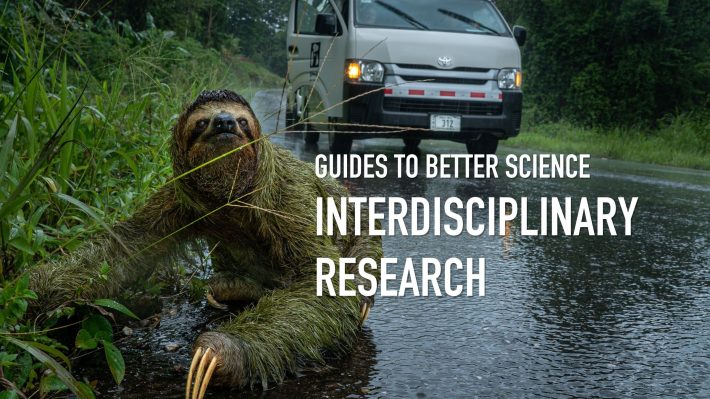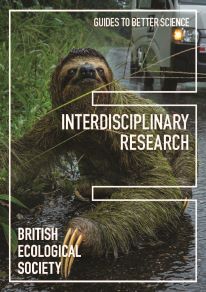New guide to interdisciplinary research
A new free guide for researchers embarking on their first interdisciplinary project, covering practical tips and case studies from other disciplines.

Many messages emerging from scientific panels on the state of biodiversity, climate change and the planet emphasize the importance of greater integration between disciplines. But there’s no textbook to read before diving into interdisciplinary work.
The guide to Interdisciplinary Research is for researchers embarking on their first interdisciplinary project. It covers practical steps to take when conceiving, planning, or participating in an interdisciplinary project.
Written by Lydia Cole and Althea Davies from the University of St Andrews, Interdisciplinary Research includes case studies from different disciplines and lessons-learned from researchers who have worked in interdisciplinary teams. The guide breaks down all the necessary steps to consider before beginning or taking part in a new project.
We hope the reader will pick up this guide as they start to formulate a new project idea, consider what actions might be needed to make it truly interdisciplinary, and then refer back at all stages of that project to help emplace the tools and establish the practices for effective team work across disciplines. Lydia Cole & Althea Davies

The guide is part the BES series Guides to Better Science which aims to promote research excellence. Each guide offers plenty of practical tips from a wide range of ecologists – an invaluable resource for students and their supervisors all around the world. With interdisciplinary work becoming more important than ever, this new guide is a timely addition to the series. All Guides to Better Science are free to download and share.
You can read more about the guide over on Relational Thinking, the blog from People and Nature.
Download your free copy today and join the conversation on Twitter: #GuidesToBetterScience
Like what we stand for?
Support our mission and help develop the next generation of ecologists by donating to the British Ecological Society.